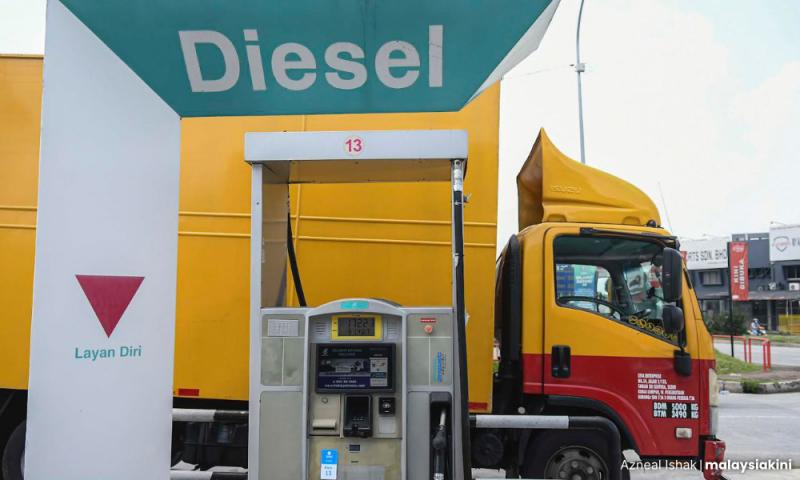
Andrew Sia
Published: Jun 15, 2024 2:15 PM
COMMENT | Diesel. Yes, we understand the need to endure higher prices if it's for the “greater good” of the country.
However, we get upset if the money saved is wasted elsewhere by the government.
Will RM1 saved on diesel (and next, petrol) subsidies equal RM1 spent to develop the country? Or just 80 sen or 60 sen?
Will the balance be lost or “bocor” (leaked) through notorious “lubang” (loopholes) to benefit some jokers?
In principle, I agree that the reform of fuel subsidies is long overdue but it can’t be done in isolation without plugging leaks elsewhere. Otherwise, the boat will still sink, maybe just a little slower.
The convoluted removal of blanket diesel subsidies ended up saving the government a grand total of about… RM4 billion. It’s supposed to allow Putrajaya to spend more on things like roads, schools and clinics.
Bearing the burden
During the “bad old days”, government contracts were notorious for being so bloated that various middle-persons could get a cut before the crumbs reached the final subcontractor actually doing the work.
In the “new, clean Madani era”, we sincerely hope that this subcontracting culture to feed assorted rent-seekers has been tamed.
Published: Jun 15, 2024 2:15 PM
COMMENT | Diesel. Yes, we understand the need to endure higher prices if it's for the “greater good” of the country.
However, we get upset if the money saved is wasted elsewhere by the government.
Will RM1 saved on diesel (and next, petrol) subsidies equal RM1 spent to develop the country? Or just 80 sen or 60 sen?
Will the balance be lost or “bocor” (leaked) through notorious “lubang” (loopholes) to benefit some jokers?
In principle, I agree that the reform of fuel subsidies is long overdue but it can’t be done in isolation without plugging leaks elsewhere. Otherwise, the boat will still sink, maybe just a little slower.
The convoluted removal of blanket diesel subsidies ended up saving the government a grand total of about… RM4 billion. It’s supposed to allow Putrajaya to spend more on things like roads, schools and clinics.
Bearing the burden
During the “bad old days”, government contracts were notorious for being so bloated that various middle-persons could get a cut before the crumbs reached the final subcontractor actually doing the work.
In the “new, clean Madani era”, we sincerely hope that this subcontracting culture to feed assorted rent-seekers has been tamed.
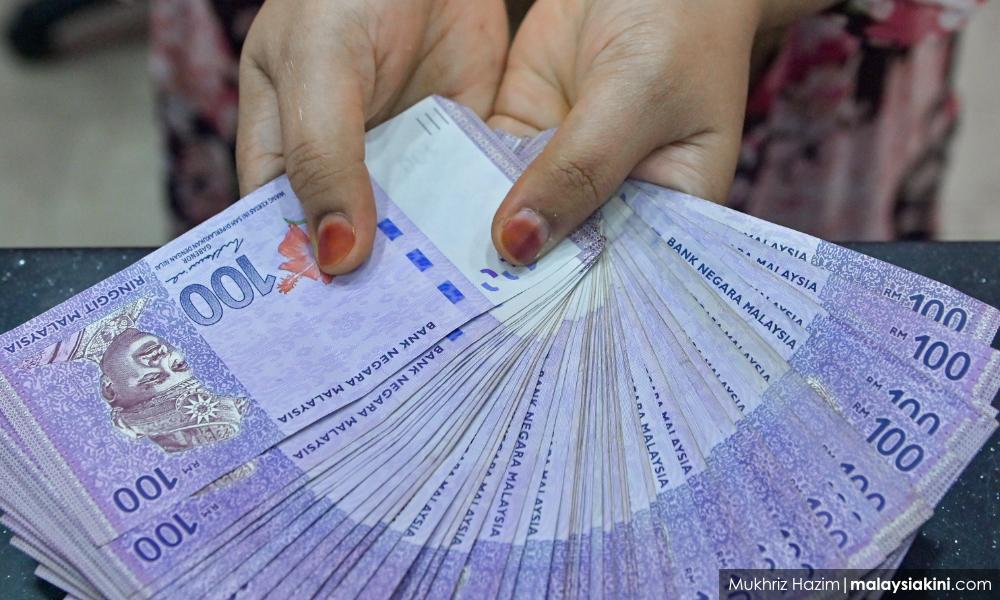
We want to have faith that consumers are not paying more for diesel only to subsidise cronyism.
Diesel subsidies, which amounted to a mere RM1.4 billion in 2019, leapt 10 times to RM14 billion last year. This suggests major siphoning of our cheap diesel to sell overseas.
However, why were authorities unable (or unwilling) to stop this? Perhaps, the MACC should investigate if any wrongdoing was involved.
The bottom line is that consumers have to bear the burden of the failure of relevant officials to stop diesel smuggling.
Leakages
There are leakages elsewhere. For example, Felda recorded RM1 billion in losses in 2022 on top of RM8.66 billion in debts.
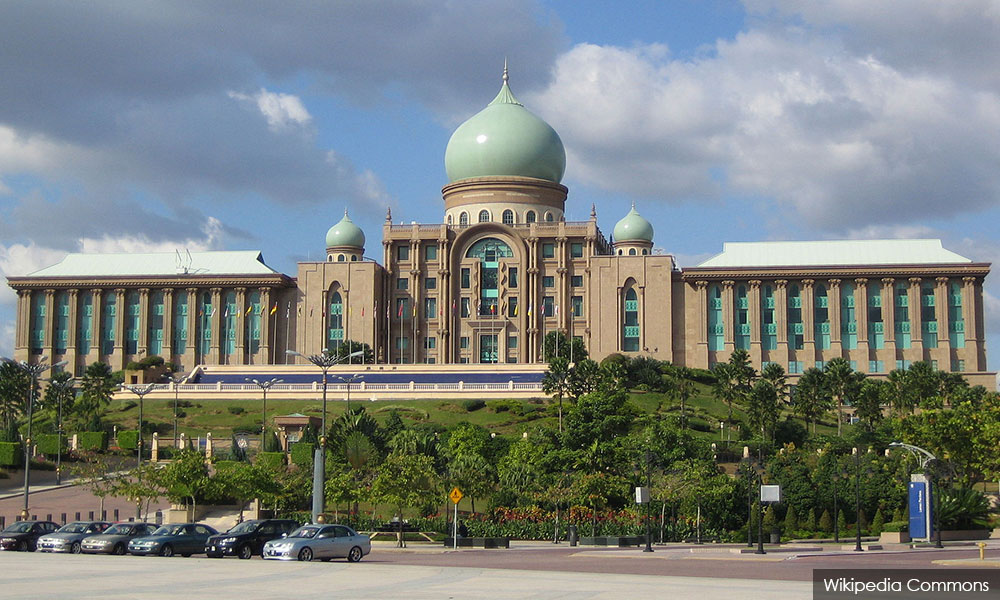
The government has been forced to support Felda with various “grants”, though more unkind analysts might call them ”bailouts”.
Perhaps, it’s a sheer coincidence that Umno politicians have, and continue to be, chairpersons of Felda.
In fact, the last Auditor-General’s Report revealed that 50 federal agencies had a deficit of over RM4.5 billion.
This raises some billion-ringgit questions. First, how much of the money “saved” from slashing fuel subsidies will be used to keep subsidising losses at Felda and elsewhere?
Second, should such wastage and mismanagement be stopped before withdrawing fuel subsidies? Why risk causing inflation?
Subsidise lazy staff?
Another sore point is that consumers have to cough up more for fuel to support a bloated and arguably inefficient civil service – for example, those who have failed to stop diesel snuggling.
Budget 2024 was the largest ever at RM393 billion. But most of it, RM303 billion, was for operating expenditure. Only RM90 billion was for development expenditure.
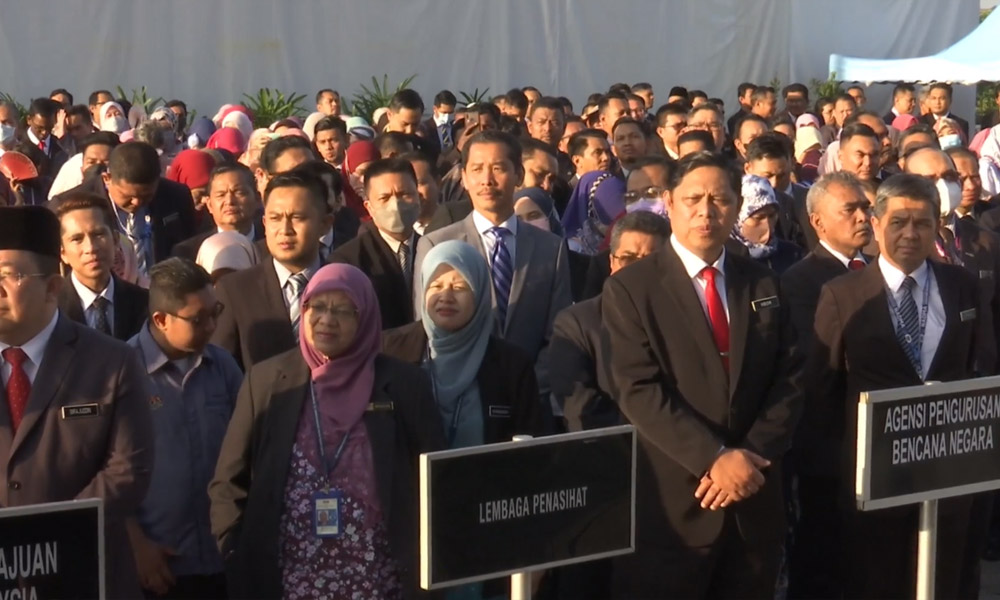
In other words, for every RM1 of taxes (or funds saved from cutting fuel subsidies), about 77 sen is used to run the government (including civil servants’ salaries and pensions). Only 23 sen is left to build new roads, clinics and schools.
The bill for the nation’s civil service has increased dramatically. It was 33 percent of government operation expenditure in 2008 with 1.2 million staff.
Yet, Prime Minister Anwar Ibrahim announced on May 1 that those salaries would rise by 13 percent (starting in December) and cost taxpayers over RM10 billion.
How much of the RM4 billion saved from diesel subsidies will go towards that RM10 billion?
We now have 1.7 million civil servants plus one million pensioners that cost RM138 billion to support. That’s a massive 45 percent of the operation expenditure.
Even former minister Khairy Jamaluddin has said civil service pensions need reform as they are a financial “time bomb”.
Thorough cleanup needed
We certainly don’t begrudge civil servants a pay rise – if they are hardworking. After all, they too need to keep up with inflation.
But what about the lazy ones, those prone to extra long tea breaks while leaving service counters empty?
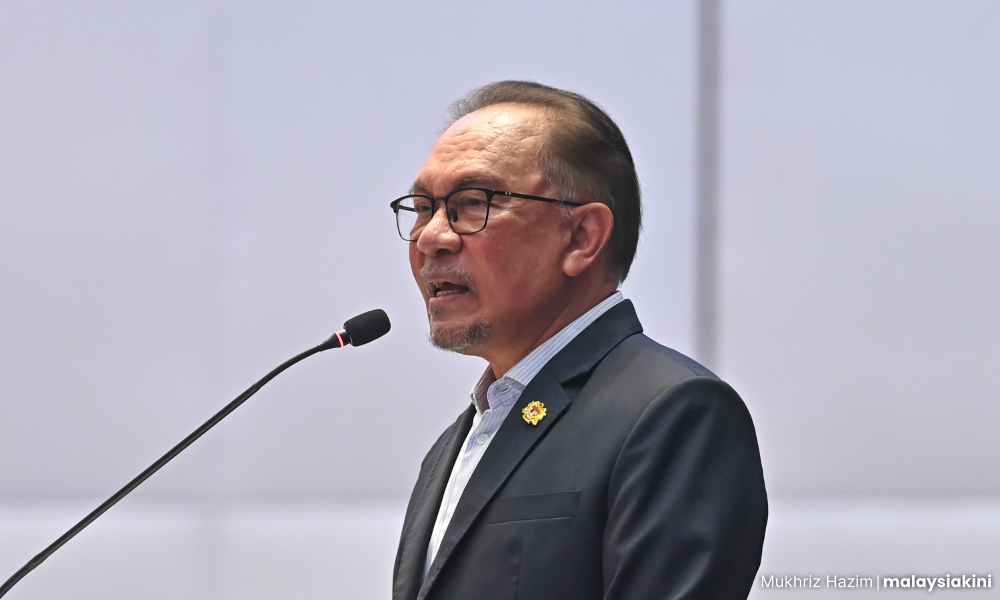
Prime Minister Anwar Ibrahim
Anwar quipped that only “four or five percent” of staff were “problematic”. He promised that those with such “disciplinary problems” would be excluded from salary hikes.
Oh really? It’s surprising that such staff are still around. Why were they not “disciplined” earlier?
Even worse, what about those suspected of corruption? For example, Tourism, Arts and Culture Minister Tiong King Sing alleged that some Immigration officers at KLIA were demanding big bribes from certain tourists.
The numbers are huge as the MACC revealed that the nation has lost RM277 billion in the past five years because of corruption.
Shouldn’t there be a thorough cleanup before any pay rises which are funded indirectly by higher fuel prices?
‘Social contract’
The Madani government has promised to take “quick action” against businesses which simply raise prices after the removal of blanket diesel subsidies.
Let us all hope such enforcement is effective.
Anwar quipped that only “four or five percent” of staff were “problematic”. He promised that those with such “disciplinary problems” would be excluded from salary hikes.
Oh really? It’s surprising that such staff are still around. Why were they not “disciplined” earlier?
Even worse, what about those suspected of corruption? For example, Tourism, Arts and Culture Minister Tiong King Sing alleged that some Immigration officers at KLIA were demanding big bribes from certain tourists.
The numbers are huge as the MACC revealed that the nation has lost RM277 billion in the past five years because of corruption.
Shouldn’t there be a thorough cleanup before any pay rises which are funded indirectly by higher fuel prices?
‘Social contract’
The Madani government has promised to take “quick action” against businesses which simply raise prices after the removal of blanket diesel subsidies.
Let us all hope such enforcement is effective.

Our dear leaders should realise that the nation’s real “social contract” is not the 1957 Merdeka Constitution. Rather, it’s this – as long as they keep the cost of living low, the rakyat are willing to tolerate all kinds of nonsense.
Former prime minister Najib Abdul Razak broke this contract when he imposed the Goods and Services Tax, which was then blamed for causing inflation.
Otherwise, perhaps the rakyat may have been willing to “close one eye” to the 1MDB scandal or his wife's luxurious lifestyle.
If a shop suddenly raises the price of chicken rice from RM10 to RM15 per plate, of course, we will ask, how has the quality improved? Is it organic chicken? Premium Japanese rice? Or has gold dust been added?
Similarly, if people have to pay more for diesel (and soon petrol) the question is: are we getting “value for money”?
ANDREW SIA is a veteran journalist who likes teh tarik khau kurang manis. You are welcome to give him ideas to brew at tehtarik@gmail.com

No comments:
Post a Comment